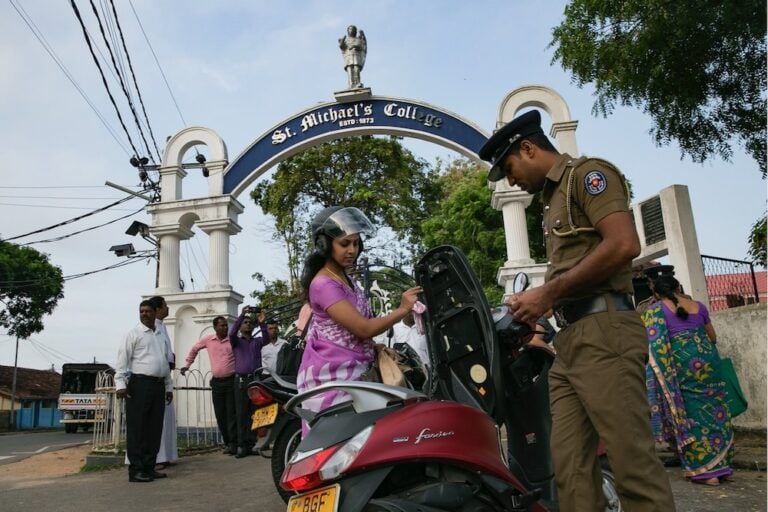(FMM/IFEX) – The Free Media Movement (FMM) registers is deep disquiet over the indictment of the General Secretary of Campaign for Free and Fair Elections (CaFFE), Mr. Rajith Keerthi Tennakoon, by the Kelaniya University. Mr. Tennakoon, who is a staff member at the university, was indicted on 6 October 2008 and immediately relieved of all […]
(FMM/IFEX) – The Free Media Movement (FMM) registers is deep disquiet over the indictment of the General Secretary of Campaign for Free and Fair Elections (CaFFE), Mr. Rajith Keerthi Tennakoon, by the Kelaniya University. Mr. Tennakoon, who is a staff member at the university, was indicted on 6 October 2008 and immediately relieved of all responsibilities, presumably for serving as the spokesperson of CaFFE and alleging that the Eastern PC polls were rigged. The statement issued by CaFFE notes that it is “? convinced this interdiction amounts to political victimisation, in no uncertain terms.”
Victimisation of Mr. Tennakoon began with his association as CaFFE spokesperson during the monitoring of the Eastern Province elections on 10 May 2008. After the conclusion of this election, the President?s Office Co-ordinating Director (Media), Mr. Chandrapala Liyanage, wrote to the University Grants Commission (UGC) chairman on 25 May 2008 demanding a report the statement that Mr. Tennakoon made while working as a public servant in a state institute, in which he alleged that the Eastern PC polls were rigged and the elections were neither free nor fair. This letter was copied to the vice chancellor of the Kelaniya University. Mr. Tennakoon was soon thereafter relieved of his responsibilities and transferred to the examination department of the university.
No charges have been filed against Mr. Tennakoon.
The FMM upholds the right of citizens to participate in any democratic activity that supports and strengthens good governance. This includes agitating for free and fair elections, upon which democracy is founded. We are extremely disappointed to note that Kelaniya University has succumbed to partisan political interests and victimised Mr. Tennakoon for pursuing legitimate democratic activities. Universities are recognised as places for the generation of ideas, free speech and liberal thinking. Sadly, Mr. Tennakoon’s case demonstrates that the erosion of Sri Lanka’s democratic tradition is systemic and pervasive.
In vehemently condemning the interdiction of Mr. Tennakoon and his victimisation for acting as the spokesperson of CaFFE, the FMM calls on university authorities to hold an impartial, transparent and quick inquiry in to this matter and restore public confidence in universities as seats of learning, free from parochial and partisan political interests.


